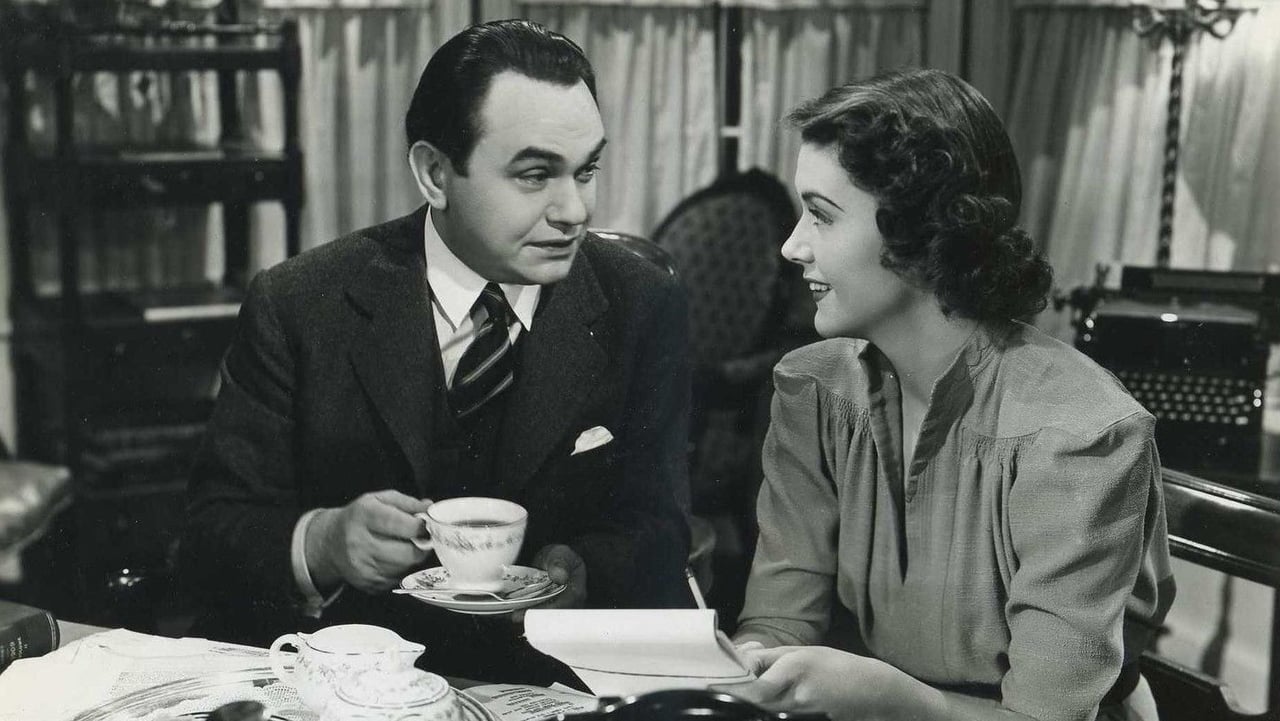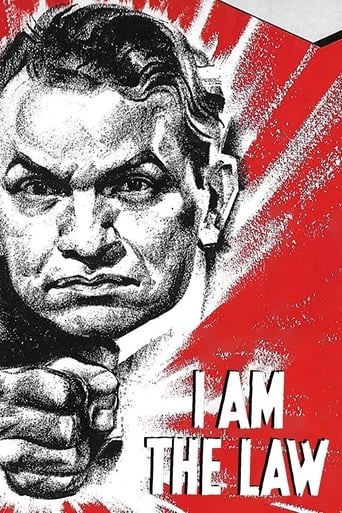Smartorhypo
Highly Overrated But Still Good
StyleSk8r
At first rather annoying in its heavy emphasis on reenactments, this movie ultimately proves fascinating, simply because the complicated, highly dramatic tale it tells still almost defies belief.
Neive Bellamy
Excellent and certainly provocative... If nothing else, the film is a real conversation starter.
Sammy-Jo Cervantes
There are moments that feel comical, some horrific, and some downright inspiring but the tonal shifts hardly matter as the end results come to a film that's perfect for this time.
mark.waltz
Rackets are taking over a big, unnamed city, so a law professor (Edward G. Robinson) decides to get involved. Little does he realize that one of his best former student's own father is head of the rackets which causes the urbane gangster (Otto Kruger) much headache when Robinson hires the son (John Beal) to be his partner. Robinson is getting a headache from trying to convince the victims of the racket to testify even though the violence has continued to get worse. Robinson's pretty wife (Barbara O'Neil) desperately wants Robinson to take a sabbatical, but that won't happen until all the racketeers are behind bars or dead.It's inevitable that at one point, the popular gangsters of the early 30's are going to play law enforcement, and after James Cagney became a "G-Man", Robinson was sure to follow suit. This is the same year that he investigated the criminal mind in "The Amazing Dr. Clitterhouse" (with future hero Humphrey Bogart still playing the gangster) and just a few years before he played a reformed gangster hiding out as a monk in "Brother Orchid". The villain here isn't a "Public Enemy" or a "Little Caeser", but a respected member of society hiding behind expensive suits and well dressed sophisticated ladies (in this case, the pretty Wendy Barrie) who is just as shady as the sugar daddy she left a career as a reporter to move into more expensive circles.The clever screenplay really hooks you in as you see the obstacles which Robinson will have in going after the unknown kingpin and the dirty rats he's out to exterminate. He's not afraid of humiliating himself or even break the law himself as long as the outcome protects the people who have become victims of a protection racket. One very clever scene has Robinson rounding up the gangsters following the widow of one of the victims, calling in the press, and proceeding to show the truth about their real character. At first it seems a bit preposterous, but it is done in such a fun way that it is easy to overlook the ridiculousness of it all. Even more clever is the finale where Robinson gets the goods on the nasty Kruger and makes a bargain with him where the only way out has no return. It's even a bit of a redemption that literally is dynamite.
Neil Doyle
Law professor John Lindsay (Edward G. Robinson) is asked by a civic leader (Otto Kruger) to become a special prosecutor to go after the racketeers in town. He doesn't know he's being duped by the civic leader until a man he promises protection to is killed by the man's henchmen. After realizing that gangsters have infiltrated his staff, he recruits his law students to form an army of law enforcers.Robinson is excellent in a "good man" role and Barbara O'Neil is radiant as his supportive wife. John Beal is a little too enthusiastic in his supporting role as Kruger's son but Wendy Barrie makes an interesting impression as a glamorous and ruthless gang moll.Although the script is full of improbabilities, it's a tense and tidy little programmer, and this time Edward G. is working at Columbia instead of Warner Bros. Despite that fact, the film has the look of the kind of gritty crime melodramas Warners produced in those days--which is a compliment.
MartinHafer
In the mid-1930s familiar movie gangsters like Edward G. Robinson and Jimmy Cagney had image makeovers. Now that the new Production Code was accepted in 1934, gangster films were less frequently made and less violent. As a result, these two actors were now given other roles--broadening their acting range. I am sure that the actors liked this chance to do something other than act tough and kill, but there is still an oddness in seeing 'Little Caesar' playing a crime-busting law professor in this film! Despite the change, this is still a dandy little film even if it is a bit conventional. Like many of the Post-Code films, this one is about punishing the gangsters and Robinson becomes obsessed with rooting out local mobsters. At first, his crusade falls flat, but when he ultimately realizes the important lesson that to have a free country, you need to ignore the Bill of Rights!! Locking up prisoners with no specific charges or evidence as well as having publicized fist fights with them is how Robinson eventually gains the upper hand! Now that's an interesting way to defend democracy!Robinson's performance is a bit more three-dimensional than usual and he's ably supported by the ever-professional Otto Kruger. Direction is good and the script, while a bit predictable, is still pretty well written. All these come together to make a film that is more than just a time-passer--it's a lot of fun as well.
bkoganbing
Back in the Thirties when Thomas E. Dewey was becoming a national figure by putting all kinds of racketeers behind bars, the special prosecutor was considered a fearless figure and good subject matter for a film hero. In this loan out film for Columbia Pictures, Edward G. Robinson plays a law professor appointed just such a city prosecutor while he's on a year's sabbatical.Robinson who plays a character with the soon to be famous name of John Lindsay has been programmed to fail because some of those same city fathers that want him in the job are those heading the rackets. And it's not like there isn't competing gangs within the underworld. But Eddie proves to be pretty resourceful and gets the job done. At least Dewey had a hand at picking his own staff.Coincidentally enough the John Lindsay who became New York's Mayor did a stint in the Eisenhower Justice Department before he was a Congressman and then Mayor.Columbia Pictures and Harry Cohn gave their visiting star as good an ensemble cast as he normally would have gotten at Warner Brothers for this kind of film. Barbara O'Neil, next year to be Scarlett O'Hara's mother in Gone With The Wind, plays Eddie's loyal supporting wife. John Beal is his ace graduate and number one assistant. Wendy Barrie plays a sob sister newspaper columnist with a sideline and Otto Kruger is her sugar daddy and father of John Beal. Both are deceptive characters.I Am The Law is a typical programmer, not too much different from what Robinson was doing at Warner Brothers at the time. Still fans of Mr. Robinson will enjoy and appreciate.

